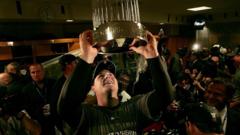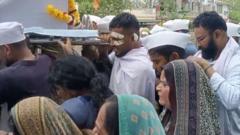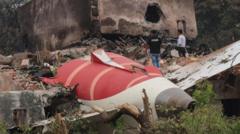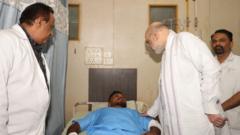I received the news of Mr. Lindenblatt's declining health during a visit to London last November. I had awoken from a dream about his daughter, Ilana, who is one of my oldest friends, and felt compelled to check if there was any truth behind my fleeting intuition. Ilana, with a heavy heart, informed me of her father's battle with cancer and the uncertain timeline of his remaining days. It was a stark reminder that life is filled with inevitable endings.
With the weight of this revelation, I couldn't help but reflect on Mr. Jehuda Lindenblatt—a name that feels both intimate and distant. He was a pioneer in health and wellbeing long before such concepts gained popularity. Known for his running—before it was merely referred to as jogging—he was also a proponent of rice milk, often walking shirtless through our neighborhood, never conforming to societal norms of fatherhood. He selflessly drove Ilana and me to various school activities, nurturing our interests even when there were no triumphs to celebrate. His lessons extended beyond mere transportation; he taught me a few phrases in Hungarian that still echo in my life.
Mr. Lindenblatt survived the Holocaust, a reality that connected our Brooklyn community deeply. Many of us carried traces of that devastating history, our family narratives interwoven with the legacy of survival. In our high school, discussions centered significantly around the Holocaust, painting vivid pictures of suffering and survival while leaving little room for exploration of other subjects. Although I often jest and lament about the focus of our education, it's clear that the moral lessons learned are invaluable. My experiences in a school that prioritized such history shaped my outlook profoundly.
In moments of personal frustration or reflection, I've realized that my foundational education was steeped in the narratives of loss and survival. While I may have skimmed through some academic subjects, the lessons from Holocaust literature—reading "Night" three times, for instance—have stayed with me, as have the stories of individuals like Mr. Lindenblatt.
Revisiting my roots, I acknowledge my high school experiences with humor. While some peers may have excelled in their endeavors post-high school, my path was not without its hurdles. Failure in certain subjects and the lighthearted acknowledgment of my shortcomings does not diminish the significance of the wisdom I internally carry. The contemporary relevance of history has never felt more pressing in the ongoing struggle for understanding our shared human experience.
As I grapple with the impending loss of Mr. Lindenblatt, it serves as a poignant reminder of the importance of telling our stories—their weight, their relevance, and the commitment to remembering those who endured unimaginable struggles to inhabit the world we know today.




















